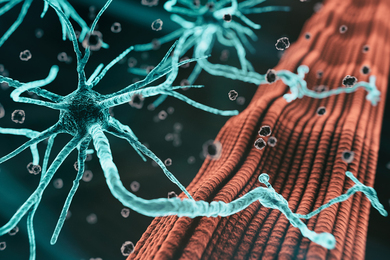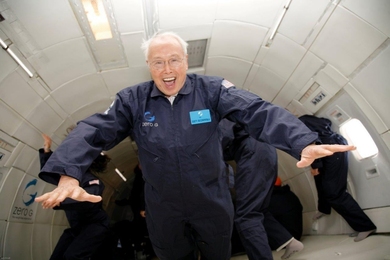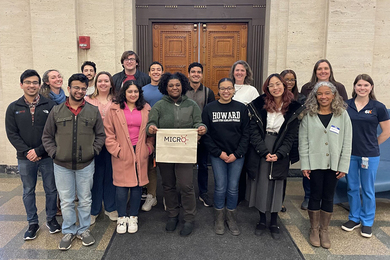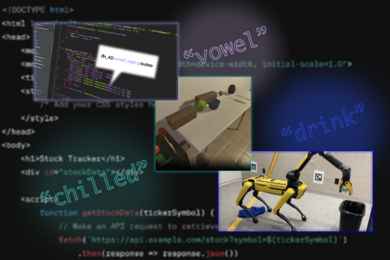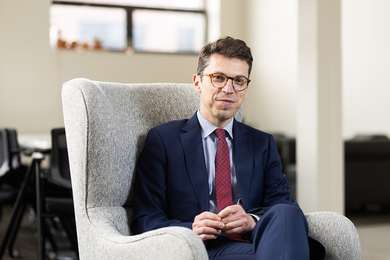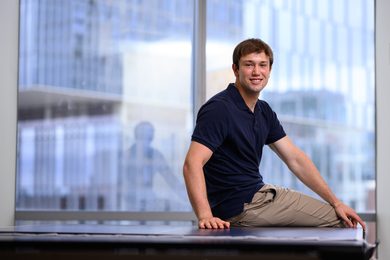On Oct. 8, 16 students presented research at the Massachusetts Junior Academy of Science (MassJAS) Fall Symposium held at MIT to a packed audience of teachers, family members, and peers, in hopes of representing Massachusetts as delegates to the next annual American Junior Academy of Science (AJAS) convention.
The MassJAS is the last step in the AJAS convention selection process. All of the weekend’s student presenters placed first at the Massachusetts State Science and Engineering Fair, also held at MIT last May. AJAS is an honor society recognizing high school students for their excellent research nationwide and is affiliated with the American Association for the Advancement of Science. The AJAS Convention is part of the annual AAAS meeting, and next year it will take place in Boston in February 2017.
The students came from eight high schools — and one middle school — from all over Massachusetts. They presented on research topics ranging from ovarian cancer to undefined partitions of infinity and worked on their projects in a variety of circumstances, from professional laboratories to make-shift labs at home. Regardless of these differences, the overall quality of the research was high across the board, making it difficult for the judges to choose only nine delegates to send to the 2017 convention.
The panel of judges was made up of graduate students and postdocs from the MIT departments of Biology, Brain and Cognitive Sciences, and Physics, and from the Microbiology and Computational and Systems Biology programs. Most judges return every year and volunteer a Saturday afternoon to be part of the MassJAS Symposium.
“It's always great to see the next generation of students get excited by scientific exploration and discovery. Judging for the Massachusetts Junior Academy of Sciences makes me feel like I'm playing a small part in encouraging this pursuit and contributing the development of new scientific curiosity,” said Athma Pai, an MIT postdoc and the chair of the math and engineering section of MassJAS.
Sora Kim, a graduate student and returning judge in the biomedical section, adds: “The students are so excited to be on the MIT campus and meet both graduate students and peers equally motivated to study science. It has been a humbling, rewarding experience to be a part of the MassJAS team.”
Although the MassJAS Symposium is a competition, the event’s ultimate purpose is to motivate and inspire young researchers early in their careers. According to Lina Colucci, a 2007 delegate to the AJAS convention and a current PhD student at the joint Harvard-MIT health Sciences and Technology Program, the symposium also gives students “formative experiences in how to present scientific work and a memorable way to foster camaraderie among scientifically-minded high school students.”
“I really enjoyed the relaxed environment at MassJAS,” said Nicholas Freitas, a high school student from Massachusetts Academy of Math and Science at the Worcester Polytechnic Institute who competed this year. “It was enjoyable to present and listen to presenters without the pressure of competing against large groups of individuals.”
For most of the nine MassJAS delegates selected, attending the AJAS Convention will be the first immersion into the world of professional scientific research at a national level. The delegates will attend an MIT-sponsored Breakfast with Scientists, where students will be mentored by MIT faculty members, among them Phillip Sharp, an Institute Professor and winner of the 1993 Nobel Prize in physiology or medicine.
“High school students dream of great accomplishments and leadership, but frequently are unsure of their ability to make a difference,” said Sharp. “When you enter a breakfast with AJAS students there is an instant excitement about possibilities and endless questions. As the breakfast ends, the mentors leave with a confidence in the future and the students with encouragement to keep dreaming”.



